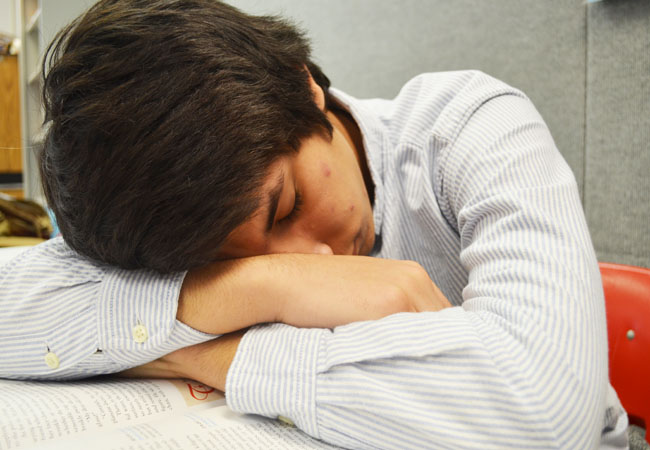Board reviews SLEEP initiative
Changes in FCPS start times are likely to change
With more support for the Start Later for Excellence in Education Proposal, or S.L.E.E.P initiative, FCPS students are closer than ever to having a later school start time. In 2009 the FCPS school board turned down a proposal to start the school at 8:00 a.m. and only moved some elementary and middle school times back by 20 minutes. But in June of last year, the newly elected school board passed a resolution to make later start times a priority.
FCPS held a workshop on Jan. 12 to discuss the upcoming 2014-2015 school year and many of the board members expressed interest in moving the start times back. Six of the twelve current school board members were a part of the S.L.E.E.P initiative, whose sole purpose is to advocate for later start times in FCPS. They are currently trying to push back the county’s bell schedule so school would start at 8:00 a.m. or later.
“I would like to have later start times because it would be really beneficial to get an extra hour of sleep,” sophomore Annie Stout said.
The idea behind a later start time is that if school gets pushed back an hour later, students are no longer getting on busses at 5:45 a.m. to get to school at 7:20 a.m. In a recent FCPS study, two in three FCPS students are severely sleep deprived, meaning they lose two or more hours of sleep that they should be getting a night and one in four FCPS teenagers suffers from symptoms of depression.
Later start times also brings into the question of safety. Because students are getting up so early to drive, they are putting themselves and others at risk. Driving drowsy is just as bad, or worse, as driving drunk and counties with earlier start times have higher teen crash rates than those who don’t.
“Driving while drowsy or driving when there isn’t much light out could cause a lot of accidents,” freshman Matthew Vogus said.
Another point the school board mentions is of 95 school counties in the state, 72 of those start on or after 8:00 a.m. Many question why FCPS starts so early when other countries start much later and are able to accomplish the same goals both academically and athletically.
“An hour isn’t that big of a difference for athletics,” Vogus said.
One major problem the school board has had trouble finding an answer to is the budget. FCPS is facing a $120 million shortfall next school year, and many aren’t sure of how FCPS would be able to pay the expenses of changing later start times.
A possible solution would be to gradually change all of the school’s start times so the county wasn’t drastically affected all at once. Last Thursday AHS was the backdrop for a story on the SLEEP initiative, and Principal Vincent Randazzo would like to be a part of a test group if it proved to be a good fit for the school.
“The decision will be a collaborative discussion between the staff, the cluster, and the division. I would be up for it if we decide it’s a good fit to pilot us.”
A benefit to being an early test school, if it was a possibility, would not only allow AHS students to be some of the first students in the county to try out the new schedule–but would allow other schools to see AHS’ opinions and views on it.
“I would like to be a test school if they had any because AHS has a diverse student body and many walkers and people who drive,” Vogus said.
While later start times have yet to be approved, it appears to be looming in the near future for FCPS students.

This is Bayley's second year on staff. Last year she was a staff writer, and she is currently the News editor. Bayley also participates on the Varsity...











